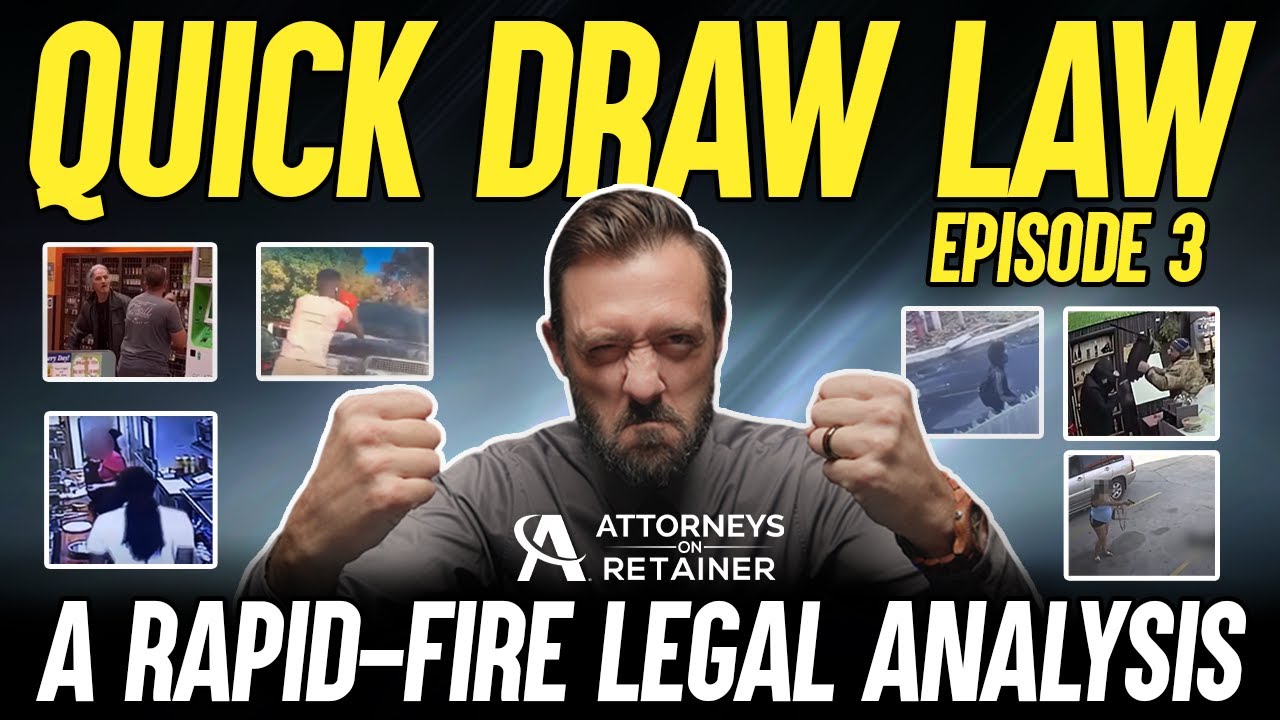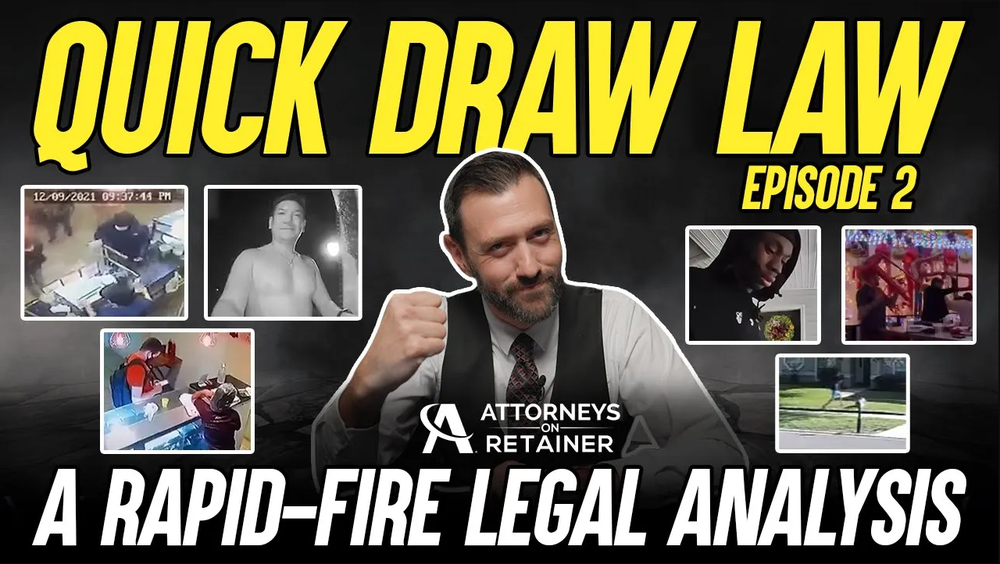The Next Chapter in Kayla Giles’ Appeal: The Oral Argument
Featuring Attorneys Marc J. Victor and Andy Marcantel
December 27, 2024
The case of Kayla Giles has sparked debates about the justice system, self-defense laws, and the reliability of insurance coverage. Ms. Giles was convicted of Second Degree Murder despite many believing she acted in self-defense. Her case is currently under review by the Louisiana Supreme Court. Criminal defense attorneys Marc J. Victor and Andrew C. Marcantel discuss the case and provide a status update.
“You don’t have a right to have your case heard by the Supreme Court, so when the Louisiana Supreme Court said you know what, there’s something about this case . . . that certainly got our attention.”
– Attorney Victor
The Incident
Around the time of the incident, Ms. Giles was involved in a challenging custody battle with her ex-husband, Thomas Coutee, Jr. During a routine custody exchange in a Walmart parking lot, she placed the children in Mr. Coutee’s car and returned to her vehicle. As she closed the door and attempted to lock it, Mr. Coutee opened it. In that moment, Ms. Giles fired a single shot, killing him. Ms. Giles asserted she acted in self-defense.
Initially, her legal defense was supported by the United States Concealed Carry Association (USCCA), which provided her with an attorney and $50,000 that was to be used for expenses associated with the case. However, USCCA unexpectedly withdrew its support during her trial. As a result, Ms. Giles was forced to pay out of pocket for her attorney and was subsequently convicted of Second Degree Murder.
USCCA Coverage Dispute and Legal Impact
Ms. Giles filed a lawsuit against USCCA, arguing it should have covered her defense. USCCA cited contract language that excludes coverage for “criminal acts,” claiming she was ineligible for coverage because she had been charged with a crime. However, the issue was that she had not yet been convicted and was presumed innocent. Her first attorney strongly believed she had a solid case. The attorneys pointed out that USCCA’s decision left Ms. Giles scrambling for new representation, which reduced her chances of obtaining an adequate defense.
“We talked to that attorney a couple of times . . . and he was surprised and shocked that they kicked him off the case . . . while she was still presumed innocent before all the discovery was received by the insurance company.”
– Attorney Marcantel
Trial Issues and Inconsistencies
After her conviction, Ms. Giles filed an appeal, which is currently under review by the Louisiana Supreme Court. Ms. Giles’ appellate counsel has raised several substantive issues, including whether the State proved beyond a reasonable doubt that Ms. Giles was not justified in shooting Mr. Coutee, whether trial counsel rendered ineffective assistance, and whether the application of a jury instruction on Louisiana’s “aggressor doctrine” was proper.
The attorneys acknowledge that proving ineffective assistance on direct appeal is challenging due to the constraints of a limited trial record. Nevertheless, appellate counsel has taken steps to preserve these claims. Appellate counsel also submitted expert affidavits on domestic violence to support the argument that a competent defense should have included expert testimony on the effects of abuse.
According to the attorneys, several circumstances may have played a role in Ms. Giles’ conviction at trial:
- No domestic violence expert at trial: Ms. Giles had a history of abuse at the hands of Mr. Coutee. A domestic violence expert could have helped the jury understand her mindset and behavior on the day of the incident. However, no such expert was called at trial.
- Juror bias: At least two jurors admitted they could not be impartial, yet they were not dismissed for cause. Ms. Giles’ defense team had to use their limited strikes to remove the two jurors.
- No change of venue request: Local media coverage had significantly influenced public opinion. Her trial took place in the same community, with jurors who already knew details about the case.
“Of the seventy-eight-person jury pool, only seventeen said during Voir Dire that they hadn’t heard about the case.”
– Attorney Victor
The Aggressor Doctrine and Jury Instructions
The core legal controversy centers on jury instructions involving Louisiana’s “stand your ground” law and the “aggressor doctrine.” The primary issue is whether the jury received proper and legally accurate instructions. Under Louisiana law, an individual is permitted to use force in self-defense when someone unlawfully enters their vehicle. However, the trial court also instructed the jury on Louisiana’s aggressor doctrine, which precludes a claim of self-defense by the aggressor, despite no evidence suggesting that Ms. Giles provoked Mr. Coutee.
During oral arguments, several justices expressed skepticism about the state’s position that Ms. Giles provoked her ex-husband to open her vehicle door. One justice remarked that the unauthorized opening of a car door by another person could reasonably trigger a lawful act of self-defense under Louisiana law.
“If somebody comes and opens my door of my vehicle, I may shoot him too.”
– Louisiana Supreme Court Associate Justice Hughes
The Supreme Court is now weighing whether to overturn the conviction or order a new trial. If successful, Ms. Giles could have a second chance to tell her story. Ms. Giles’ tumultuous experience underscores the challenges faced by individuals who claim self-defense, especially those relying on insurance coverage for legal defense.
Instead of contracting with an insurance company, connect with an established and well-respected criminal defense law firm like The Attorneys For Freedom Law Firm (AFF). AFF is solely dedicated to representing clients in self-defense cases through our Attorneys On Retainer Program (AOR). If you are interested in learning more about our AOR Program, contact us by calling (866)-404-5112 or email us.



